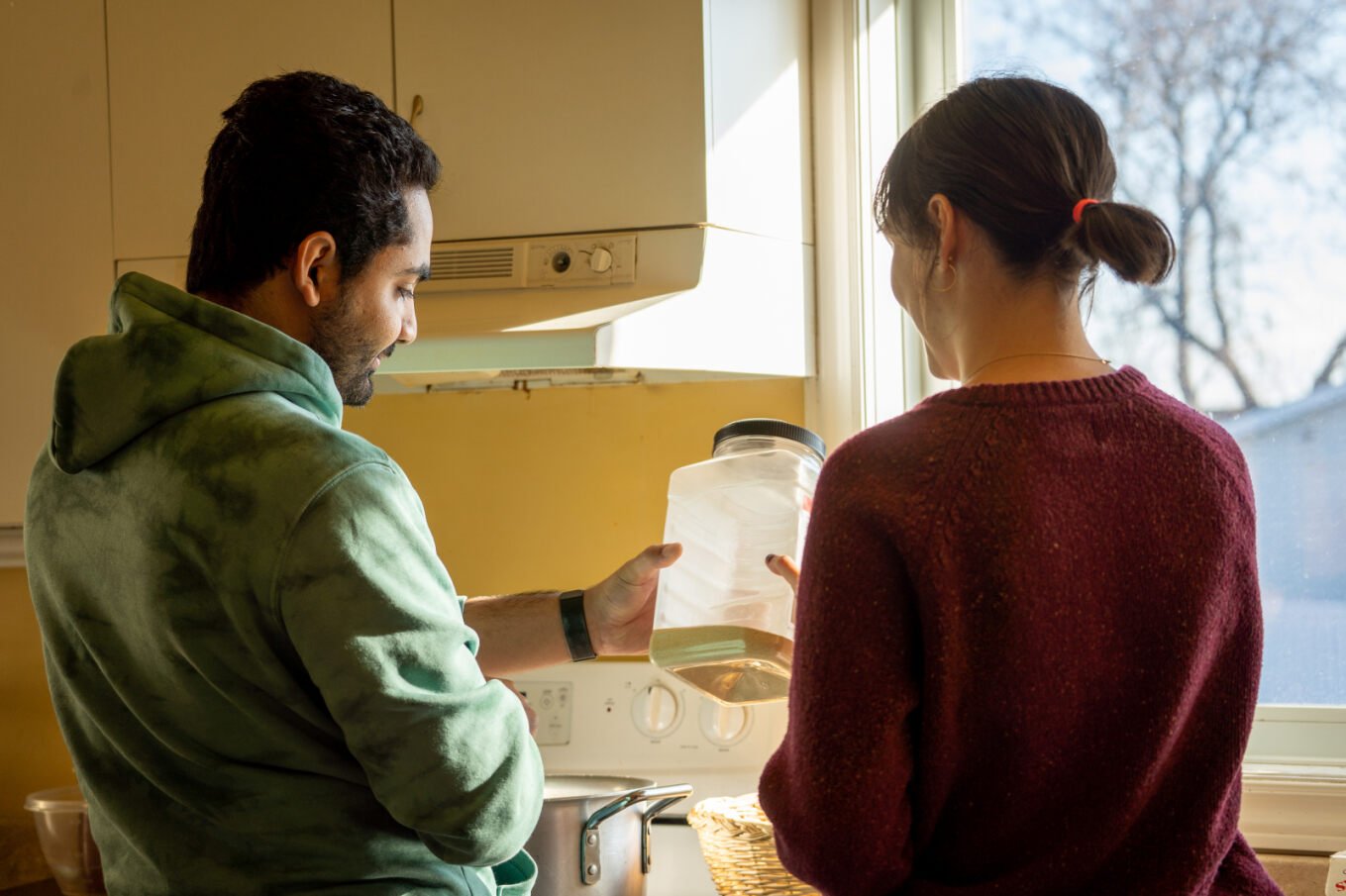City of Ottawa partners with MHO to support newcomers, reduce shelter surge
An unsettling trend has proliferated in Ottawa’s shelters. Since 2023, the number of newcomers seeking refuge in emergency shelters has more than doubled.
“During the pandemic, we started to see this huge influx of need for the shelter system,” explained Kale Brown, Manager of Homelessness System and Operations for the City of Ottawa. This started with the use of community spaces as physical distancing centres, and more recently an increase in demand from newcomers who are homeless.
According to Matthew House Ottawa Executive Director, Allan Reesor-McDowell, “many of the newcomers we are seeing in the shelter system are in fact refugee claimants. Many refugee claimants end up homeless because when they first arrive in Canada there is a lack of coordination: they are not connected to the information and expertise they need, to shelter or supports.”
With no coordination of supports, many refugees have nowhere to go but emergency shelters.
That’s why Allan and other community leaders have been advocating for a coordinated, community-based approach that connects refugee claimants to the services they need from the moment they arrive in Canada; getting them stabilized, employed and housed faster all the while alleviating pressure on health and social services.
At Matthew House Ottawa, our refugee services program currently operates 20 homes throughout the city, providing a bed, food and settlement support tailored to the needs of 180+ newly arrived refugee claimants at a time. This model has huge appeal for the city. According to Kale, “compared to a traditional shelter system [where] we're providing three meals a day, case management, supports, [and] of course you need a dedicated building… this is a much more financially savvy decision.”
As it stands today, funding a bed at Matthew House costs the city much less than funding one at a traditional shelter. This means that collaborating with Matthew House doesn’t just support the city’s goal to reduce homelessness, it frees up their resources to shelter Ottawa’s other vulnerable neighbours.
“One of the reasons I have really been able to advocate from the city side to build out groups like Matthew House is because we desperately need more resources in the traditional shelter side of things as well.” Explained Kale.
“Supporting newcomers in this way is helping us put dollars back into the traditional shelter system and make sure things are sustainable across the sector.”
The model of having transitional homes scattered in neighbourhoods across the city offers a reassuring alternative both for Ottawa residents wary of the long-term effects of clustered shelters in their neighbourhoods as well as newcomers eager to build a new life.
“It’s not some big mega shelter, where if one thing goes wrong it sours the whole experience for every migrant.” Explained Kale, who’s seen firsthand how this model offers a counterpoint to the growing shift in public sentiment toward newcomers. “It reduces the rhetoric that, you know, ‘newcomers are scary,’” he explained, with many Ottawa residents sharing positive feedback about newcomers who, upon securing housing, choose to stay in the same neighbourhood as their transition home.
“There’s a lot of positives in this, and a lot of community integration that happens.” Said Kale. “We hear good stories about that all the time from community partners.”
Among our staff and volunteers, Matthew House Ottawa’s refugee services program is run largely by newcomers themselves. With lived experience guiding our work, we’ve been able to build housing and integration models that really work. “Allan leverages a lot of people who went through this journey and experience,” explained Kale, “having that brings a client-centric model for newcomers.”
Today, the need for our community-based solutions is high. According to Kale, “it seems as fast as we can build it, people need those spaces.” That’s why Matthew House was brought in to support the city’s application with Immigration, Refugees, and Citizenship Canada for a newcomer reception model. “We’re presented with an immense problem,” explained Kale, “and being able to lean on Matthew House to say ‘What should 2.0 of the whole shelter system look like?’ has been extremely helpful.”
Through our continued collaboration, Matthew House and the City of Ottawa have our eye on the horizon, where the city’s most vulnerable residents can readily access the support they need to change their lives for the better.

